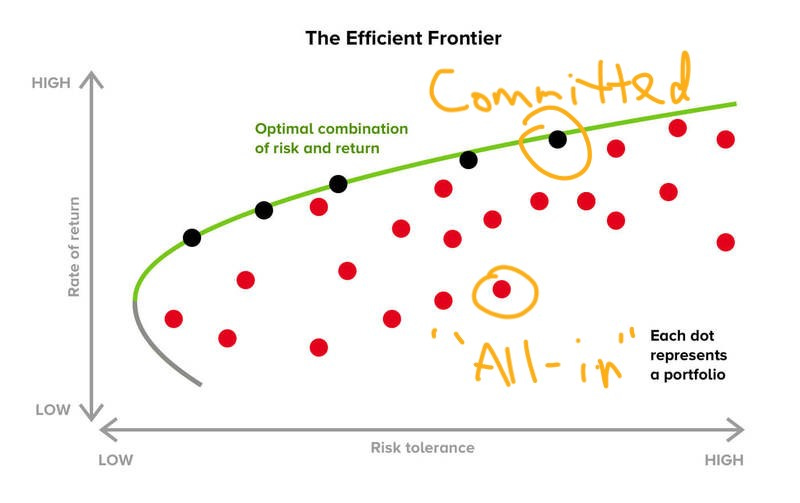Being "All-in" is Overrated
And why commitment and high opportunity cost are better predictors of success
Elizabeth Holmes was “all in”. So was Sam Bankman-Fried. People (investors and media, especially) are in love with the image of the all in founder. There’s even a podcast named after the concept. People love it because it’s enthralling to watch, and exciting when it works out.1
But this is the wrong framework. I look for risk-seeking founders with commitment that stems from high opportunity cost. To break this down a bit with some specifics:
One can be risk-seeking while also being acutely aware of the cost of being wrong. Take pilots, as one example. (Good) pilots don’t take unnecessary risks. The cost of doing so is incredibly high. That sort of stuff is left for test pilots. Test pilots fly for the thrill, amateur pilots fly for the fun.
Commitment stems from actions, not words. Did you spend your own money to build a garage prototype? Did you already leave your prior job?
High opportunity cost comes from choosing not to pursue other (high quality) ideas, senior (high paid) roles at other high growth companies, and time spent at work that could otherwise be with friends and family (note: I very explicitly did not include *money* in this definition).
In my experience, “all-in” founders tend to forge ahead without regard for costs, while committed founders tend to be pragmatic about the path to derisk a big opportunity. To bring back our trusted “efficient frontier” graphic, here’s how the idea of investing behind “Committed” vs. “All-in” differs from a risk/return perspective.

Great companies can certainly be founded by irrational people taking unnecessary risks that are in it for the thrill, but in my experience exceptional outcomes result from committed founders with high opportunity cost that are in it for the fun.
+Mike
Elon Musk is well-known for having “all his money in SpaceX and Tesla” leading up to SpaceX’s fourth (and likely final) attempt to successfully launch the Falcon 1 (spoiler alert: it worked out for him…). If it hadn’t worked, he would have been broke.



